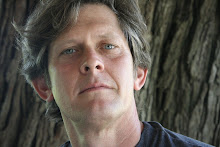 OpEd Piece: Hattiesburg American
OpEd Piece: Hattiesburg American
Lately, I’ve been revisiting Alvin Toffler’s influential book Future Shock.
Though written forty years ago, Toffler – a futurist by profession – predicted many of the things we’ve recently become accustomed to as normal.
He foresaw the “throw-away society” where advancements in automation make it cheaper to produce a new product than to fix the old one.
When computers were huge vacuum-tubed hulks housed in separate big rooms, he predicted that distance learning would someday be the norm as everyone will have a small networked computer in their home.
And at a time when the ideal was to get a job and keep it for the rest of your life, he forecasted lifestyles that are transient, with individuals moving from job to job and from place to place when opportunities arise.
Central to the premise of his book was the historical observation that technological change has been happening faster and faster with the passing of time. He interpolated into the future to lay out a scenario where the rate of change continues to speed up to a dizzying pace, and thus society will be forced to adapt along with that technology.
Toffler: “We may define future shock as the distress, both physical and psychological, that arises from an over-load of the human organism’s physical adaptive systems and its decision-making processes. Put more simply, future shock is the human response to overstimulation.”
The green movement is a modern-day manifestation of what Toffler was talking about. Advancements in green technologies just keep coming.
Today, technology has improved to the point where the cost of clean renewable energy, when scaled up to serve everyone, is at par with pollution-based energies (not even accounting for the value of clean air). Non-toxic finishes are beginning to compete with traditional toxic-emitting materials, and zero energy buildings are now outperforming the lifetime cost of cheaper energy-guzzling construction.
Yet, the acceptance of green technologies is causing quite a stir in our national debate.
Toffler suggested a cure. “To survive, to avert what we’ve termed future shock, the individual must become infinitely more adaptable and capable than ever before. “
The fast pace of advancement in the green movement does require that we adapt to processing change as never before. Change, much demonized by some, is not a boogie man. In fact, change is the common denominator for every advancement we’ve ever had.
The friction you hear from fossil-fuel industries and some political leaders (i.e. drill baby drill) is the sound of resistance to that technological change. (Can you think of the sound of ripping Velcro?)
Yet technology speeds on with advancements in solar, wind, and other renewable energies happening faster and faster. It is inevitable that the green economy will overtake the dirty economy – to everyone’s advantage - at some point in the future.
Unless, and until we learn to adapt to and embrace that change, the transition will be very, very painful.





2 comments:
Every ine should read this .........
Thanks for sharing.............
________________
DyanaDevis
Online Marketing of your brand
The protrusions are heliports and skyparks!
--
Jenifer
Home Security Systems no CREDIT CHECK everyone is approved
Post a Comment